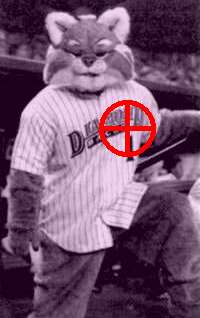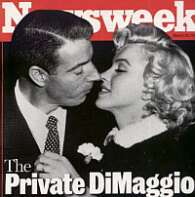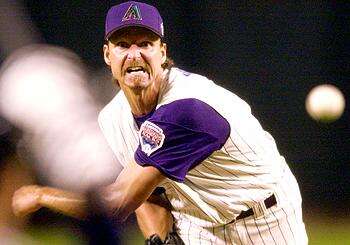Everybody Wants to Rule the World (Series)
or All Your Baseballs are Belong to Us…
or Why is a Brit watching anyway?

Phoenix is a city than runs by car; no-one walks anywhere. But last night, even allowing for it being Sunday, the roads were incredibly quiet: the local baseball team, the Arizona Diamondbacks were playing game 2 of the World Series, and the whole town, it seemed, was glued to the screen. Even I wouldn’t have been out except for parental duty, returning a visiting small child to its owner – with bad grace, and at a speed that would have been reckless, had not all Phoenix’s finest been in the donut shop watching the game too. It is painful to be dragged away from the screen, simply to stop the whining of someone who doesn’t appreciate the potentially once-in-a-lifetime nature of this event.
For my hometown team to be taking part was miraculous, as the Arizona Diamondbacks made it to the game’s ultimate showcase in just their fourth season. While I’d been supporting them since their inception (partly through proxy via Chris, partly through the Reuters feed at HSBC), it was my first World Series actually living here and there are cities which have gone DECADES without winning a World Series. No team from Chicago has made it this far in 42 years, while Boston last won the World Series in 1918. Boy, they must be pissed.
Particularly so, since history is part of the sport’s essence. It has far more than any other popular sport in America, with the first organised league forming in 1858. This may not seem particularly impressive, but is pretty good considering that basketball wasn’t even invented until more than thirty years later, and the first Superbowl took place as long ago as, er, 1967. Compared to this, baseball holds a unique place in the American psyche.

And in mine too. Chris and I attended about a dozen games this year, in addition to countless more on TV, the radio or the Internet. Their home, Bank One Ballpark, is a fabulous new stadium with a retractable roof, air-conditioning and a swimming pool in which spectators (albeit rich, corporate ones, mostly) can frolic during the game. It’s all very civilised – you can even get Newcastle Brown Ale on draft (albeit at a rich, corporate price) – despite the intensely irritating mascot, D.Baxter. The logic of a team named the Diamondbacks having a bobcat as a mascot escapes me entirely, and his smugly furry grin and childish antics are sufficient to get the most stoic animal-rights advocate reaching for a rifle.
To any statistically-minded individual (waves pencil in air), the game is a paradise, with RBIs, ERAs, slugging percentages and more decimal points than an accountant’s convention. But you can just sit there and absorb it – baseball is the sort of game that creeps up on you, until you suddenly realise you’re wondering whether the pitcher will lay down a sacrifice bunt, or if the manager will pull him for a pinch-hitter capable of going the other way against a hanging splitter, up and in. I appreciate that sentence probably made no sense to 95% of readers, and will try to restrain myself.

It also possesses a timeless nature, with games being open-ended, continuing until someone wins – however long this takes. And it can take a while; even the average game is around the three-hour mark, but earlier this season, we played eighteen innings – twice as long as a regular game – which took just shy of six hours. We won 1-0, and that wasn’t even the longest game played in the major leagues this year. Any sport capable of playing such utter havoc with TV schedules can only be loved.
In line with this languid approach is a regular season which lasts for a mere 162 games, followed by playoffs leading to the World Series, a best of seven matchup scheduled over nine days. Non-Americans tend to scoff at the term “World Series” given the only teams ever taking part come from the USA and Canada, but these days, the game is seriously international, with the two likely Rookies of the Year coming from Japan and the Dominican Republic. As mentioned, the Diamondbacks made it to this final showdown, after fewer years in existence than any team ever, but in American sport, less important than longevity is an owner prepared to plough lots of money into the club.

Yankee star DiMaggio with his wife, believed to be an actress
The D’backs have that – their owner also has the local NBA basketball franchise – but it was still something of a surprise, given most of the team are the wrong side of 30 (or in pitcher Mike Morgan’s case, 42) and seen as past their prime. We were given little hope, especially as our opponents are the New York Yankees, the Manchester United of baseball. Like the Reds, the Yankees are extremely rich, very successful, and hated by everyone outside their own city, and indeed a good chunk of those inside. [Just as United has City, so the Yankees have the New York Mets] Their history is peppered with name familiar even to non-Americans, like Babe Ruth and Joe DiMaggio. The Yankees had won 26 World Series in all, including the past three with little trouble, winning 12 games and losing only one in that time. Just this once, they also had more outside sympathy than usual, being a symbol of national pride after the events of 9/11.
No-one gave the Diamondbacks much of a chance before play started on Saturday. As mentioned, history plays a big part in baseball, and the Diamondbacks don’t have any to speak of. Most of the population in Phoenix is from elsewhere, and bring their loyalties with them – when teams like the Chicago Cubs came to town, it was hard to be sure who was the home side. Die-hards were largely limited to people like myself, who moved here after the franchise started, and we failed to sell out some earlier playoff games against St.Louis and Atlanta, which is like having tickets left over for an FA Cup semi-final.

But here we are, on Monday morning, and the Diamondbacks are two games up, having won 9-0 and 4-1. What the hell happened? Two words: Schilling and Johnson. They are the star pitchers for the D’backs – in cricketing terms, it’s a bit like when Lillee and Thomson played for Australia, with both at the top of their best seasons ever. Their styles are different: Curt Schilling uses pinpoint accuracy and movement to deceive the batter, while the very scary Randy Johnson – 6’10” tall – blazes it past them at 98 mph. Rounders, this ain’t.
Normally, even good batters only manage to hit the ball three times out of ten, one way or another, but in those first two games the Yankees batters – reigning world champions, remember – managed barely one out of ten. The bad news is, the effort involved is so extreme that most pitchers need four days of rest to recover before they can be used again, and the rest of the D’backs staff are nowhere near as effective. In addition, the next three games take place in New York. In the Bronx. In Yankee Stadium. Where the lovely fans have a reputation akin to Chelsea supporters with a hangover, and are renowned for slinging batteries at opposing players. How people like our 22-year old Korean pitcher, Kim, will cope, I dread to think.
But just at the moment, Arizona is the centre of the baseball universe, and with a 2-0 lead, there’s no better place for this recent convert to baseball to be. All is truly right with the world…